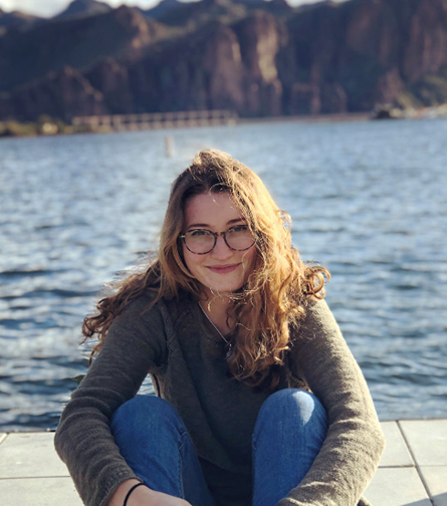
I am a first-year master’s student working with Dr. Shangping Xu in the Department of Geosciences at the University of Wisconsin, Milwaukee. I am originally from Wisconsin and attended Beloit College for my undergraduate degree in Geology. My current research is informed by my coursework in chemical hydrogeology, groundwater modeling, and water quality.
We designed a column experiment using soil cored from agricultural land in central Wisconsin to study how PFAS behaves in biosolids applied to farmland. I’m testing whether these chemicals can be mobilized through the soil, or if they stay put. To explore a possible mitigation strategy, I added powdered dolomite to half of the soil columns to see if it can help sequester PFAS and keep them from moving deeper into the soil profile. Using precipitation data from NOAA, I’m replicating the rainfall patterns from spring 2019, which was a particularly wet year. On each day it rained that season, I add synthetic rainwater to the columns in the exact volume that fell. Every few days, I collect the water that moves through the columns and analyze how much PFAS made it through.
In addition to the experimental part of my research, there is also a modeling component. I am using HYDRUS 1D to try and predict the fate and transport of PFAS in the vadose zone and assess potential impacts on groundwater. The primary goal of this research is to examine the effect of low-cost dolomite on reducing the uptake of PFAS by plants from biosolid-amended soils.
MGWA is committed to developing a just, equitable, and inclusive groundwater community. Click on the button below to read MGWA’s full diversity statement.